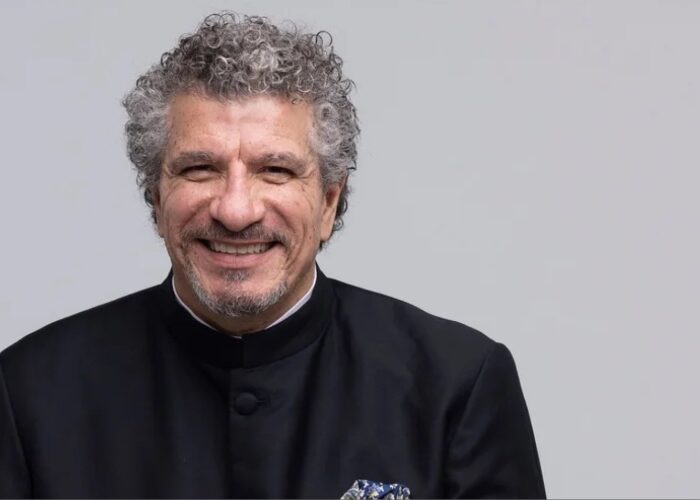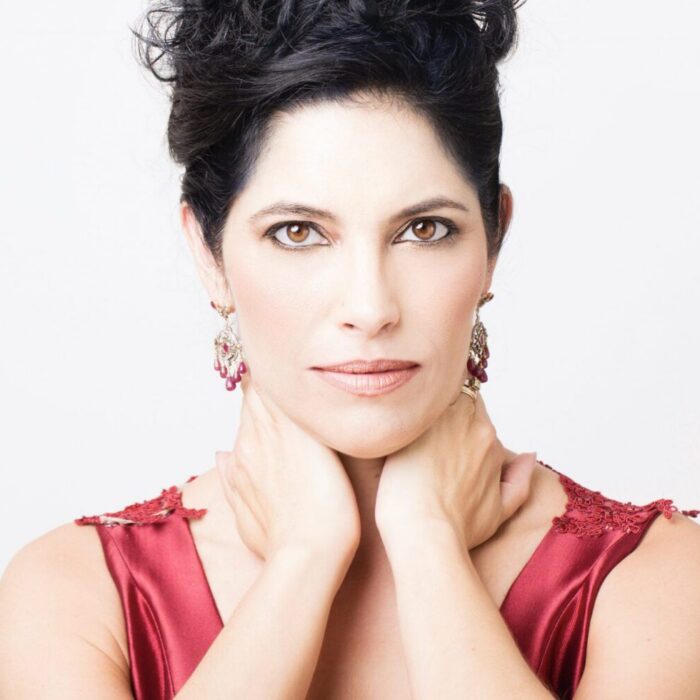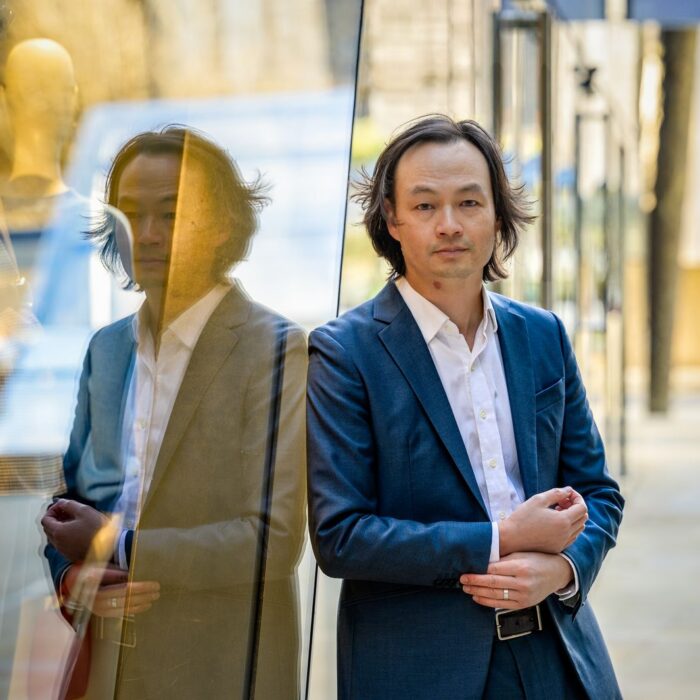
Q & A: Nicola Cleary on the Sligo Baroque Music Festival
By Alan Neilson(Photo: Ferdia Durkin)
On the evening of Friday, September 26th, the Sligo Baroque Music Festival kicks off this year’s festival with a concert entitled “Corelliana” by the Vespres d’Amadi Baroque Orchestra, directed by Dani Espasa, at the city’s St. John’s Cathedral. As its name suggests, it is a festival dedicated to baroque music in all its forms, including opera.
Although Ireland has seen a major expansion in its provision of opera and classical music in general over the past few years, the Sligo Baroque Music Festival remains relatively unknown. Therefore, this year, OperaWire, attracted by its interesting and imaginative program, which includes a community opera and a performance of Vivaldi’s “Gloria,” has decided to pay a visit.
In preparation, we were lucky enough to be able to arrange an interview with Nicola Cleary, who for the past five years has been artistic director, and although she has now stepped down from the post, she is still heavily involved with the organization.
OperaWire: How did the Sligo Baroque Music Festival come into being, and how has it developed over the years?
Nicola Cleary: We are based in the northwest of Ireland on the Wild Atlantic Way in the stunningly beautiful city of Sligo. It is only a small place with a population of about 20,000 people and is situated only 10 minutes from the Atlantic Ocean. Thanks to the Irish poet W.B. Yeats, who had strong connections with the area, it is known as “The Land of Heart’s Desire.” It may be a small city, but it has a proud cultural history, and our festival is just another addition to this tradition.
The festival was founded by Rod Alston, who was a devotee of baroque music. I remember asking him once why he had decided to establish the festival, and he told me that he had no choice! Sligo is quite isolated, and he was too busy to travel to attend Baroque concerts, so therefore, he had to bring the baroque to Sligo.
Its inaugural year was 1995 and it lasted for three days over the final weekend in September. This has not changed. For the past 29 years, the festival has opened its doors every year, including during Covid, in which we were still able to put on live events.
Although we still only perform over a three-day period, the festival has grown significantly over the years: audiences have grown, and we are now able to attract high-quality international artists. It has had a really good impact on the town. Local people who have never attended classical concerts now know about, attend and even participate in festival events. It has had a very positive effect.
I stepped down as artistic director after the 2024 festival, and we are very pleased that we were able to attract Sharon Carty to take up the post as artistic director.
OW: What has been your connection with the festival over the years?
NC: Although I now live in the Northwest of Ireland with my family, I am originally from Dublin. I am a trained classical violinist and baroque specialist and have worked across Europe as well as here in Ireland. For ten years, I worked in Paris with the ensemble Orfeo 55 with Natalie Stutzmann and toured many festivals, where I grew to realize the power festivals have to reinvigorate a community. When I moved to Sligo with my family, I became involved with the Sligo Baroque Music Festival, and when Rod retired in 2019, I took over from him as the artistic director. One of my motivations was to make it a festival for everybody, and over the past five years, I have been happy with what I have achieved in this respect, as well as in the quality of the international and homegrown artists that we have been able to attract, which has helped raise the festival’s profile.
OW: It is only a small festival by international standards. Do you have the time or resources to include opera performances?
NC: We have managed to stage two operas so far. In 2023, we staged a performance of Händel’s “Acis and Galatea,” which was a production originally given at the Händel Festival in Halle. The orchestra was the Collegium Marianum. It was a beautiful production that used marionettes that interacted with the singers. It was a brilliant success; it was our first full opera production, and it completely sold out, showing that there is definitely an appetite here in Sligo for opera.
Last year, we produced our second opera. This time with our own production of Purcell’s “The Fairy Queen.” The musical ensemble was the London Händel Players, and the soloists consisted of eight young Irish singers. There were also baroque dance routines choreographed by Mary Collins. It proved to be another success!
OW: You are performing an opera again this year, but I believe it is very different from the past two productions?
NC: Yes, we are, although, as you said, it will be very different from anything we have done so far. This will be a community youth opera, written and performed by youngsters from the area. Fourteen performers, aged between 12 and 17, have been working throughout the year with our team of experts, who have been giving them workshops and advice to provide them with insights into the baroque world, including the instruments. But it is their opera! We guide them, but they make the decisions. The text, the music, everything is written by them. Anna Mullarky guided them with the musical composition.
The opera is called “Murder at Midnight,” and although it has a baroque influence, it also possesses a contemporary slant. It will be performed at the Hawk’s Well Theatre, and we are confident that it will sell out rather quickly.
The only element of the production that the youngsters are not performing is the music itself. The ensemble will consist of myself on violin, Aoife Nic Athlaoich on cello, Laoise McMullen on harpsichord and Elizabeth Vogel on baroque flute. The ensemble has no name, as we want the focus to remain on the youngsters.
OW: Apart from the events you have already mentioned, what else does the festival have planned?
NC: We have a full program; there will be concerts, recitals, workshops and talks over the three days. But don’t worry, there will also be time to relax and eat.
We are very pleased to welcome the Woodpeckers Recorder Quartet from Sweden, who will be giving an early morning concert on the Saturday at The Model and later during the day a free open-air concert in Queen Meave Square. Another highlight will be a talk and recital by the harpist Siobhan Armstrong on the Sunday, who will also be giving a masterclass later in the day. There will be concerts by the Sligo Baroque Orchestra, Florilegium, an outstanding period ensemble from the UK, and the Sligo Academy of Music.
The festival will end with a gala concert, entitled ‘Viva Vivaldi,’ in Cathedral of the Immaculate Conception, in which we will showcase Vivaldi’s “Gloria.” This is Sharon’s brainchild. She wanted to develop the vocal element within the festival, which, in the future, we hope will mean the performance of a baroque opera each year or maybe every two years, depending on funding and support. It also forms part of her plan to further involve the community by developing a festival chorus, which will be comprised of local singers. They have been rehearsing throughout the year in preparation for this performance. The soloists will be soprano Sarah Shine and mezzo-soprano Sarah Kilcoyne. The concert will also include a performance of sections from the “Magnificat” sung by the Drumcliffe Children’s Choir and there will also be a couple of arias performed by Sharon and a cello concerto by Aoife Nic Aehlaoich. I think it will be a fabulous concert, one that will provide the festival with an excellent finale.
As you can see, we cram a lot into the three days. It is also a very varied program aimed at attracting a wide range of people.
OW: How do you expect the festival to develop over the coming years?
NC: First and foremost, we want the festival to remain true to the vision of our founder, Rod Alston, which is to provide quality music in an interesting program of events that is able to connect to a wide variety of people. And I think baroque music offers this.
Of course, we are always looking at ways to develop, and Sharon has many ideas on how to proceed, especially with regard to the vocal content of the festival, which we shall be able to glimpse during this festival with the inclusion of a community opera and the formation of a festival choir.



